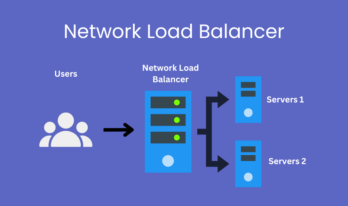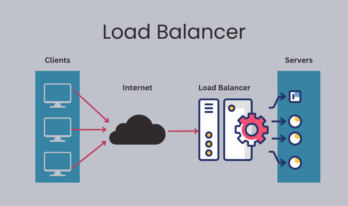Cloud computing is a reality, but many companies are still afraid to migrate their systems and data for this environment.
Some of the biggest that concerns IT managers have about this issue is related to the confidentiality of information, the quality of services, and the performance that enterprise systems will have after migration.
The hybrid cloud can act as an important ally in this regard. It can offer tailored options for each business, enabling customers to choose what they want to move to the cloud, what to keep in place, and decide which cloud services to use for what purpose.
Known for combining the best features of public and private clouds, hybrid cloud has become a key investment for many businesses.
After reading this blog you’ll be able to weigh the pros and cons of hybrid cloud and eventually know if it is worth investing in your case.
Hybrid cloud is a service that combines public cloud solutions with private clouds. Typically, a private environment is set up and developed on-demand in a data center for that particular company.
Both the public and private cloud, work independently, and are connected as needed. Thus, when data needs greater flexibility and customization, it is directed to the private environment.
While data that is less sensitive or needs to have some of your information exposed, or shared, is stored in a public environment. Thus, the company is not limited to providing greater security for its information and can work with its infrastructure more flexibly.
By associating a private cloud with a public cloud to form a hybrid infrastructure, a company can use only certain services and deploy only certain workloads selected upstream in the cloud.
For example, you can choose to deploy a critical workload, with strong security requirements or compliance to a private cloud. This gives the company total control over the infrastructure and the software stack.
Investing in a hybrid cloud can bring a number of benefits to the company. According to the needs of each sector, the company will be able to optimize routines and give more quality to business services. See below some of the key advantages of hybrid cloud:
One of the main advantages of the hybrid cloud is its flexibility. Because this model allows the enterprise to direct its resources to private and public cloud computing environments quickly, it becomes easier to evaluate how to best structure a set of IT solutions that are based on cloud computing.
With a hybrid cloud, companies have a range of management and service models, they can choose between, adopting the most appropriate, innovative, and least risky solution.
The hybrid cloud makes it possible to set up a modular system according to your needs.
If you need to perform very large data analytics, the hybrid cloud provides better resource allocation and avoids investing in hundreds or even thousands of servers and storage devices.
This will allow you to create a cluster, block, or group of data in the private cloud and send your data to it.
Hybrid cloud enables organizations to move faster to DevOps - a set of practices for integrating development, operations, and analytic teams.
By connecting infrastructures, you can achieve faster software performance. This allows developers to focus on creating solutions and products.
A hybrid cloud can also bring mobility to the business. As resources become available over the web to all users, the company can flex its routines without losing competitiveness.
Distance working arrangements, as well as policies such as BYOD, will not pose a risk to the quality of the company's services.
Hybrid cloud enhances system security and reliability by allowing sensitive information to be stored in a private environment. Protection against physical attacks is enhanced because the information is divided into multiple data centers.
Despite these advantages, it also has its share of faults. See below some key disadvantages of a hybrid cloud.
It can indeed be complex to implement and difficult to maintain. For example, setting up a private cloud can be a remarkably difficult project in itself since it requires a strong demand for local infrastructures, such as servers, storage, and network capabilities.
It actually has the disadvantage of being much more expensive than the public cloud. The cost that accompanies the installation and the maintenance of servers is high.
As the hybrid cloud is a combination of both public and private clouds. There is no risk of intrusion between neighbors on a public network, but misuse of the infrastructure contracted by another company can put yours at risk as a successful attack on the main server opens a breach for each client’s system.
Compatibility between files used in the private cloud and the public cloud can be a big headache when using a hybrid cloud.
If this is the strategy you are plotting, make sure you have the software in place to run all types of files on both platforms and also to convert files for security.
Because public and private clouds have fundamental differences, you need to know what they are compatible with.
This can be decisive in the success or failure of your business.
Both data and applications in a hybrid cloud exist in a symbiotic relationship, meaning one ends up being useless without the other.
Therefore, when considering where to store each of these data or applications, it is essential to verify how this integration is done.
With your resources and information placed across private and public-based cloud network, you sometimes tend to lose sight of the wholesome view of all the information.
This can get much more complicated if you're using multiple 3rd party cloud providers.
After going through, both the pros and cons of the hybrid cloud, I'm sure you must have got some idea as to whether or not it suits your need.
You may also like to read:
Pros and Cons of Public Cloud
Cloud Computing vs. Virtualization: Difference Explained




